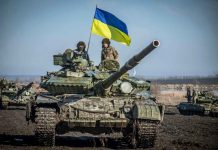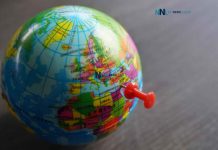

Often people fail to respect what freedom of the press really means. It means speaking truth to power, and it means being a watchdog over governments.
Without Freedom of the Press, the work by renowned Washington Post journalists Bob Woodward and Carl Bernstein, the Watergate scandal would never have been brought to light.
Canadians enjoy legal protection for their fundamental freedoms under the Charter of Rights and Freedoms.
2. Everyone has the following fundamental freedoms:
(a) freedom of conscience and religion;
(b) freedom of thought, belief, opinion and expression, including freedom of the press and other media of communication;
(c) freedom of peaceful assembly; and
(d) freedom of association.

Today, with the Internet, the scope of media continues to shift, evolve and change. Websites like Wikileaks which have exposed documents that governments would prefer never got exposed are taking new directions for ‘media’ – Eric Snowden is perhaps one of the most famous ‘Wikileakers’.
Wikipedia reports that “WikiLeaks is an international, online, non-profit, journalistic organisation which publishes secret information, news leaks, and classified media from anonymous sources. Its website, initiated in 2006 in Iceland by the organization Sunshine Press, claimed a database of more than 1.2 million documents within a year of its launch. Julian Assange, an Australian Internet activist, is generally described as its founder, editor-in-chief, and director. Kristinn Hrafnsson, Joseph Farrell, and Sarah Harrison are the only other publicly known and acknowledged associates of Julian Assange. Hrafnsson is also a member of Sunshine Press Productions along with Assange, Ingi Ragnar Ingason, and Gavin MacFadyen.”
The United Nations Celebrating World Press Freedom Day
The United Nations is marking World Press Freedom Day today with an appeal to all States, societies and individuals to actively defend press freedom as a fundamental right and as a critical contribution to achieving and sustaining the Millennium Development Goals (MDGs).
This call was made in a joint message by Secretary-General Ban Ki-moon and Irina Bokova, Director-General of UN Educational Scientific and Cultural Organization (UNESCO), who said UN bodies are already working together and with other partners under UNESCO’s leadership to create a free and safe environment for journalists and media workers around the world.
Their message goes on to stress that this year, the international community has a once-in-a-generation opportunity to prepare a long-term agenda for sustainable development to succeed the MDGs when they end in 2015.
“Successfully implementing that agenda will require that all populations enjoy the fundamental rights of freedom of opinion and expression, the officials said, underscoring that those rights are essential to democracy, transparency, accountability and the rule of law. “They are vital for human dignity, social progress and inclusive development.”
World Press Freedom Day, which was designated as May 3rd in 1993 by the UN General Assembly, is being marked in about 100 countries and UNESCO is holding an international conference entitled “Media Freedom For a Better Future: Shaping the Post-2015 Development Agenda” from 5 to 6 May in Paris.
Also marking the Day, 31 specialists from the largest body of independent experts in the UN Human Rights system called on all Governments to promote and protect the rights to freedom of expression and information, freedom of peaceful assembly, and freedom of association and public participation.
Protection of these fundamental freedoms is essential for full realization of all human rights for all and for the achievement of related development goals. “States must develop more inclusive political processes and allow the media to play a key role in guaranteeing the right of everyone…to freely access information and engage in meaningful development related discourse.”
The experts, known as Special Procedures of the Human Rights Council, comprise the Organization’s largest body of independent fact-finding and monitoring mechanisms that address either specific country situations or thematic issues in all parts of the world.
“Without free media to advocate for and monitor the implementation of the new set of post-2015 targets, there can be no real development for all marginalized, vulnerable or discriminated against. Not now, not ever,” declared the experts.
At a UN Headquarters this past Thursday, senior officials stressed that free media, traditional and new, are indispensable for development, democracy and good governance, during a briefing on “Media freedom for a better future: shaping the post-2015 development agenda.”
“Freedom of expression, independent media and universal access to knowledge will fortify our efforts to achieve lasting results for people and the planet,” Mr. Ban said in opening remarks to the briefing.
The discussion mirrored the theme of this year’s Day, and will also feed into the major effort under way throughout the UN System to achieve a new development agenda to succeed the landmark MDGs.
Mr. Ban said that every day of the year, the fundamental freedom to receive and impart ideas through any media is under assault, “to the detriment of us all.” Indeed, journalists are being singled out for speaking or writing uncomfortable truths – kidnapped, detained, beaten and sometimes murdered.
“Such treatment is completely unacceptable in a world ever more reliant on global news outlets and the journalists who serve them,” said the UN chief.
He told the briefing that last year, 70 journalists were killed; many caught in the cross-fire of armed hostilities. Fourteen more have suffered the same fate this year. Also last year, 211 journalists were being held in prison. Some 456 journalist have been forced into exile since 2008. And since 1992, well over 1,000 journalists have been killed – nearly one per week.
“These are alarming figures. Behind each statistic stands a man or a woman simply going about their lawful business,” the Secretary-General said, stressing that there must be no impunity for those who target journalists for violence, intimidation or distorted uses of legal procedures to disrupt or impede their work.
As for the post-2015 agenda, he said free media, traditional and new, are indispensable for development. They can promote transparency about the new goals that Member States will adopt – progress as well as shortfalls. “Social media and mobile technologies offer new tools for accelerating citizen participation and economic and social progress,” he said, adding that the media’s watchdog function is essential for holding Governments, businesses and others to account.
Echoing those sentiments, John Ashe, President of the UN General Assembly, said freedom of expression and freedom of the press are fundamental rights that form an essential pillar of democratic societies. “When journalists are able to report freely, they support informed citizen participation in political and social processes and promote civic engagement,” he added.
Mr. Ashe recalled that in December 2013, the Assembly adopted for the first time a resolution condemning all attacks and violence against journalists and media workers, and proclaimed 2 November as the International Day to end Impunity for Crimes against Journalists.
“Our Assembly called upon Member States to promote a safe and enabling environment for journalists to perform their work independently and without undue interference. In this regard, the UN Plan of Action on the Safety of Journalists and the Issue of Impunity is an important multi-stakeholder mechanism,” he said, adding that only by ensuring that journalists can work safely and without fear will they be able to give voice to those who do not have one, tell stories that are untold and help build open and transparent societies.



